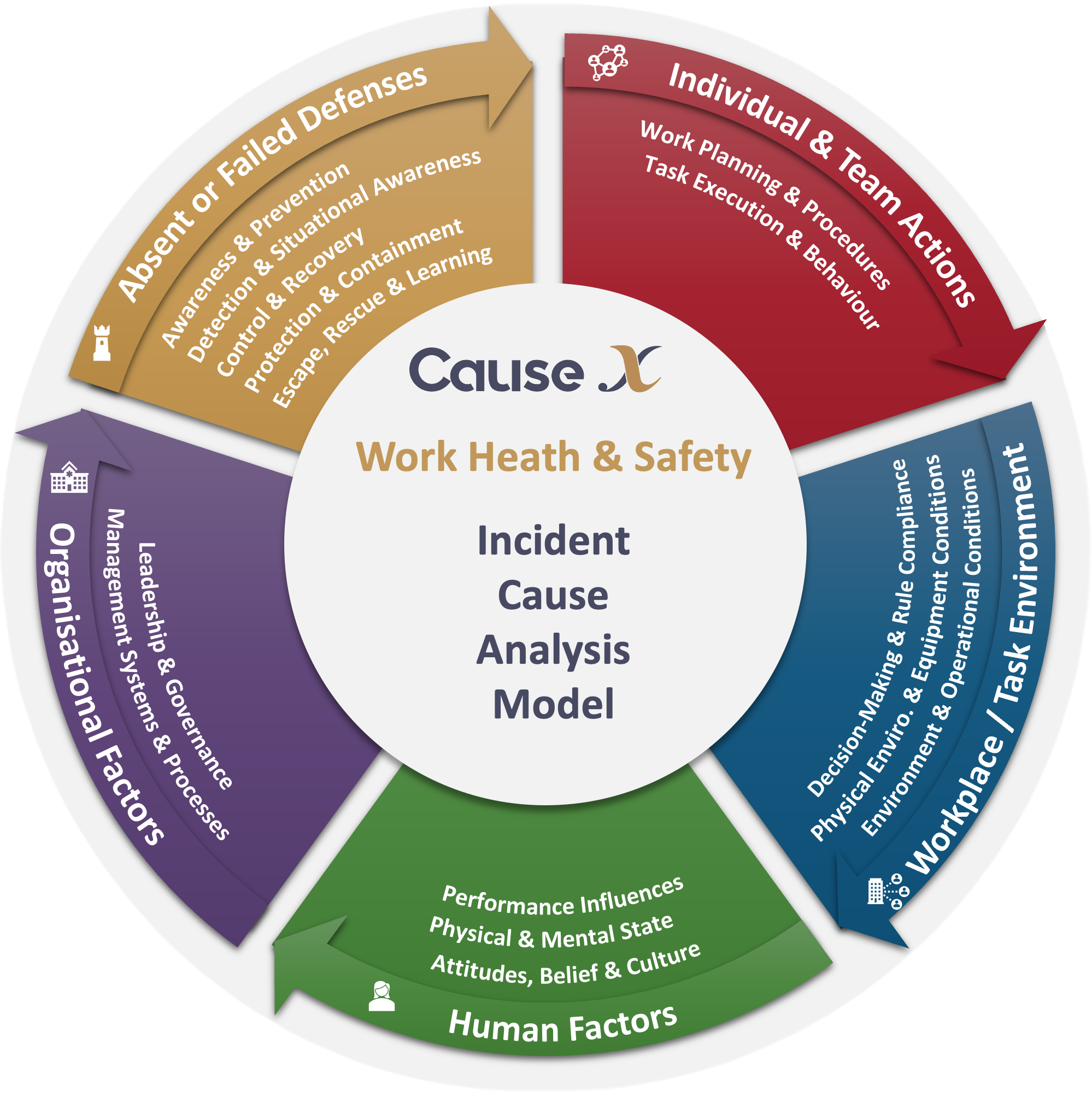
Work Health & Safety
Incident Cause Analysis Model (ICAM)
The Incident Cause Analysis Method (ICAM) is a structured, industry-recognised Work Health and Safety (WHS) investigation framework designed to uncover the full chain of factors that contribute to incidents, injuries, near-misses, and operational failures. Originally developed for high-risk, safety-critical environments such as aviation, mining, construction, manufacturing, and healthcare, ICAM helps organisations move beyond blame by identifying the deeper systemic, human, environmental, and organisational influences behind an event.
Using a holistic, evidence-based approach, ICAM examines each layer of causation to provide clear, defensible insights into how and why an incident occurred, and what must change to prevent recurrence. The method delivers practical, actionable recommendations that strengthen WHS systems, improve safety leadership, and support long-term organisational learning.
Our WHS investigations apply the ICAM framework to ensure every contributing factor is understood, documented, and addressed—helping organisations build safer, more resilient workplaces..
ICAM examines five key contributing factor groups:
Absent or Failed Defences – the systems, controls, procedures, or safeguards that should have prevented the incident but did not
Individual and Team Actions – the decisions, behaviours, and actions taken immediately before and during the event
Workplace and Task Environment – physical conditions, tools, equipment, weather, task design, and local environmental influences
Human Factors – cognitive, psychological, and physiological influences such as fatigue, situational awareness, stress, or workload
Organisational Factors – leadership, culture, communication, systems, resourcing, priorities, and governance elements that shape safety outcomes
By analysing all five layers, ICAM provides a clear, evidence-based understanding of how and why an incident occurred, ensuring that both immediate and systemic contributors are identified. This results in practical, meaningful corrective actions that improve WHS performance, strengthen safety culture, and reduce the likelihood of recurrence.
Our WHS investigations apply the ICAM methodology to deliver comprehensive, defensible findings that support safer, more resilient workplaces


